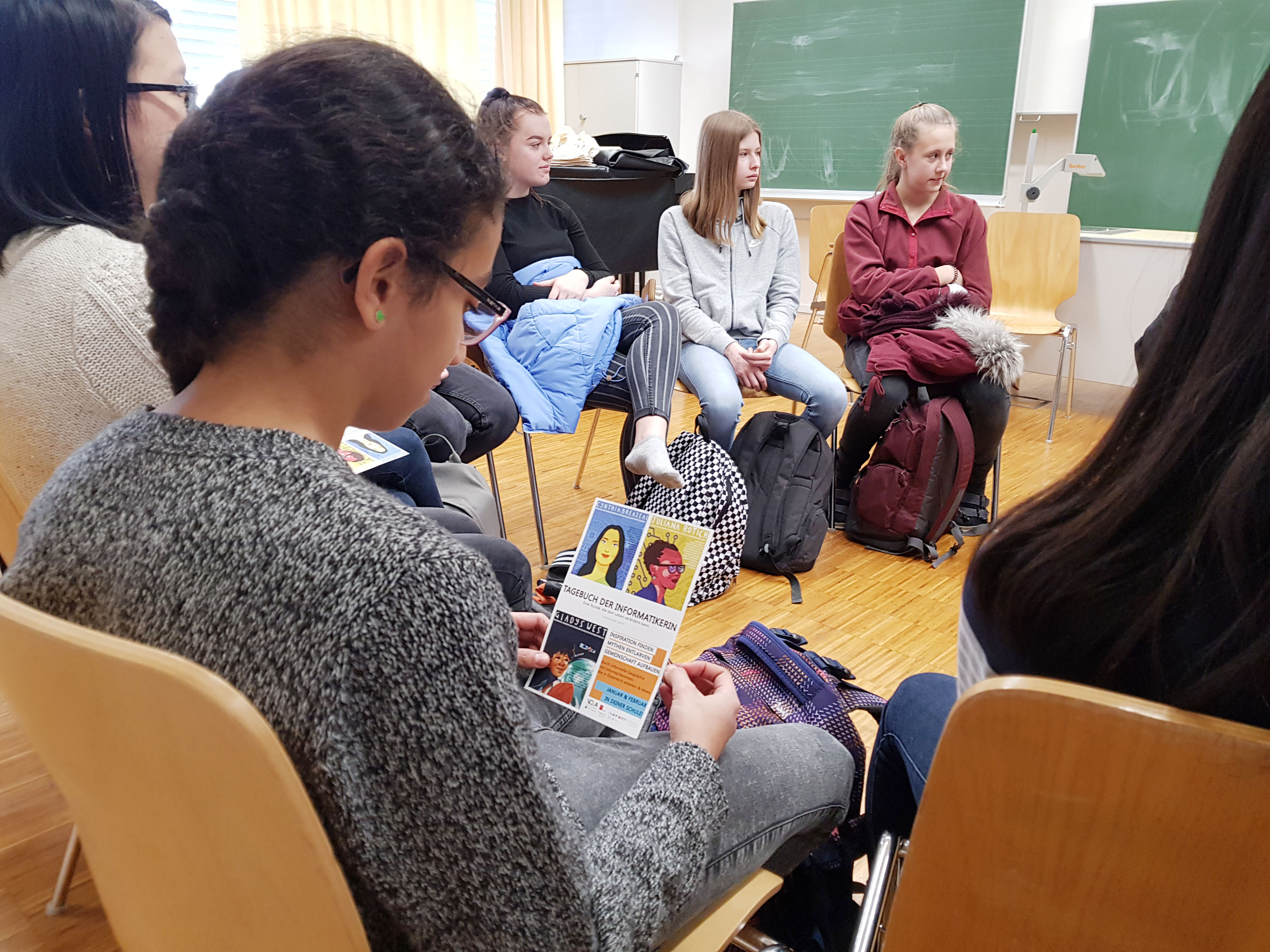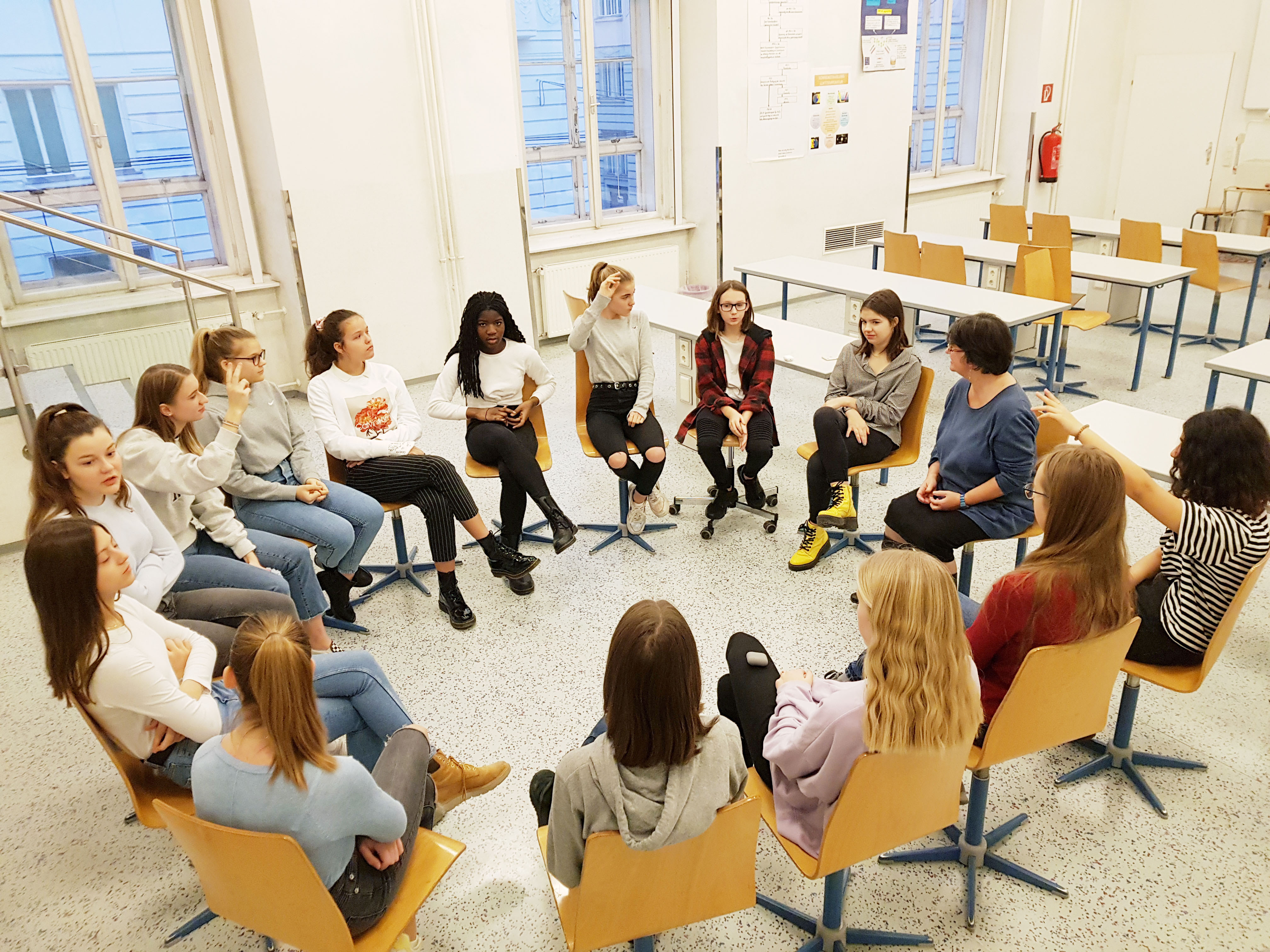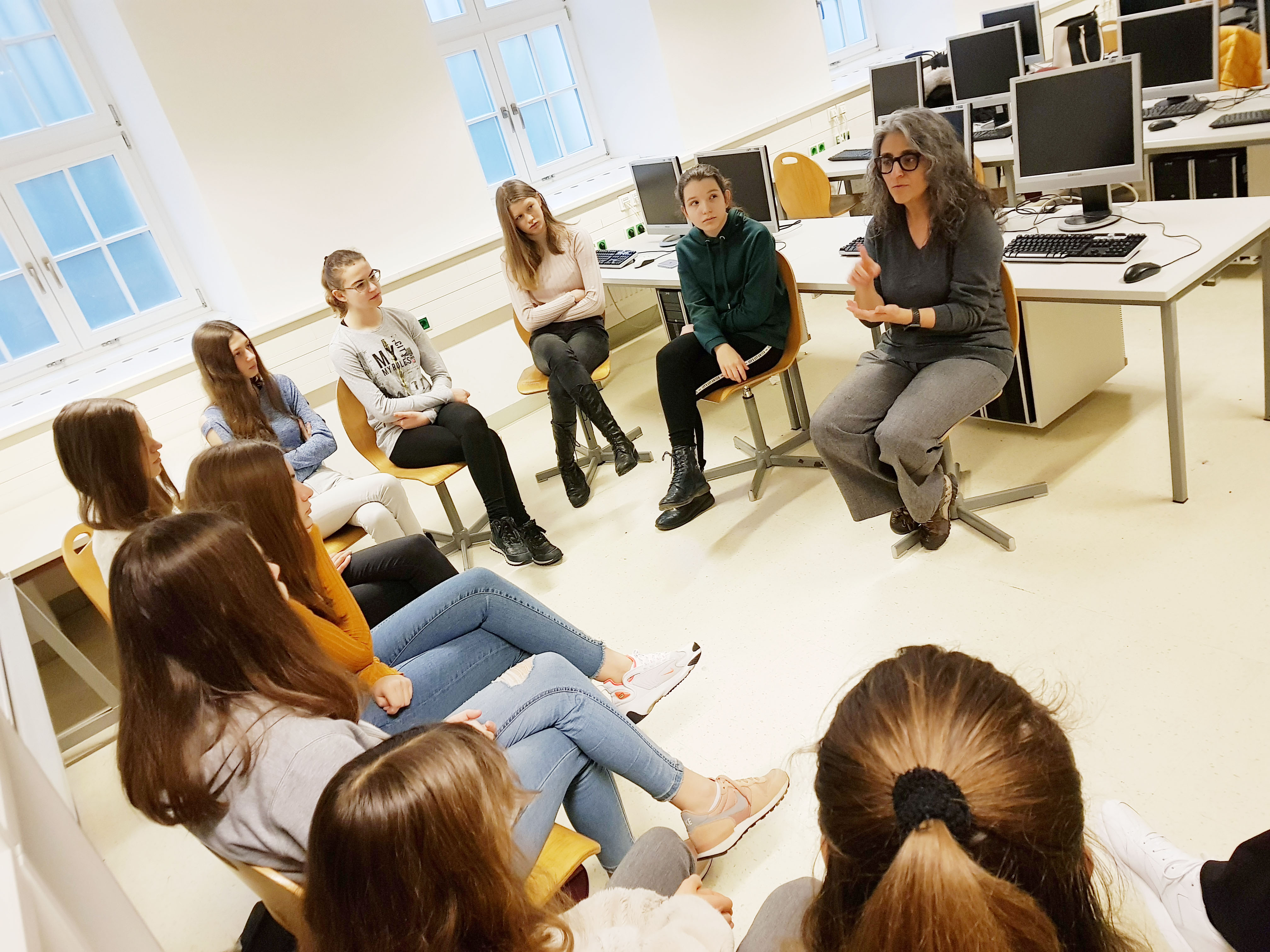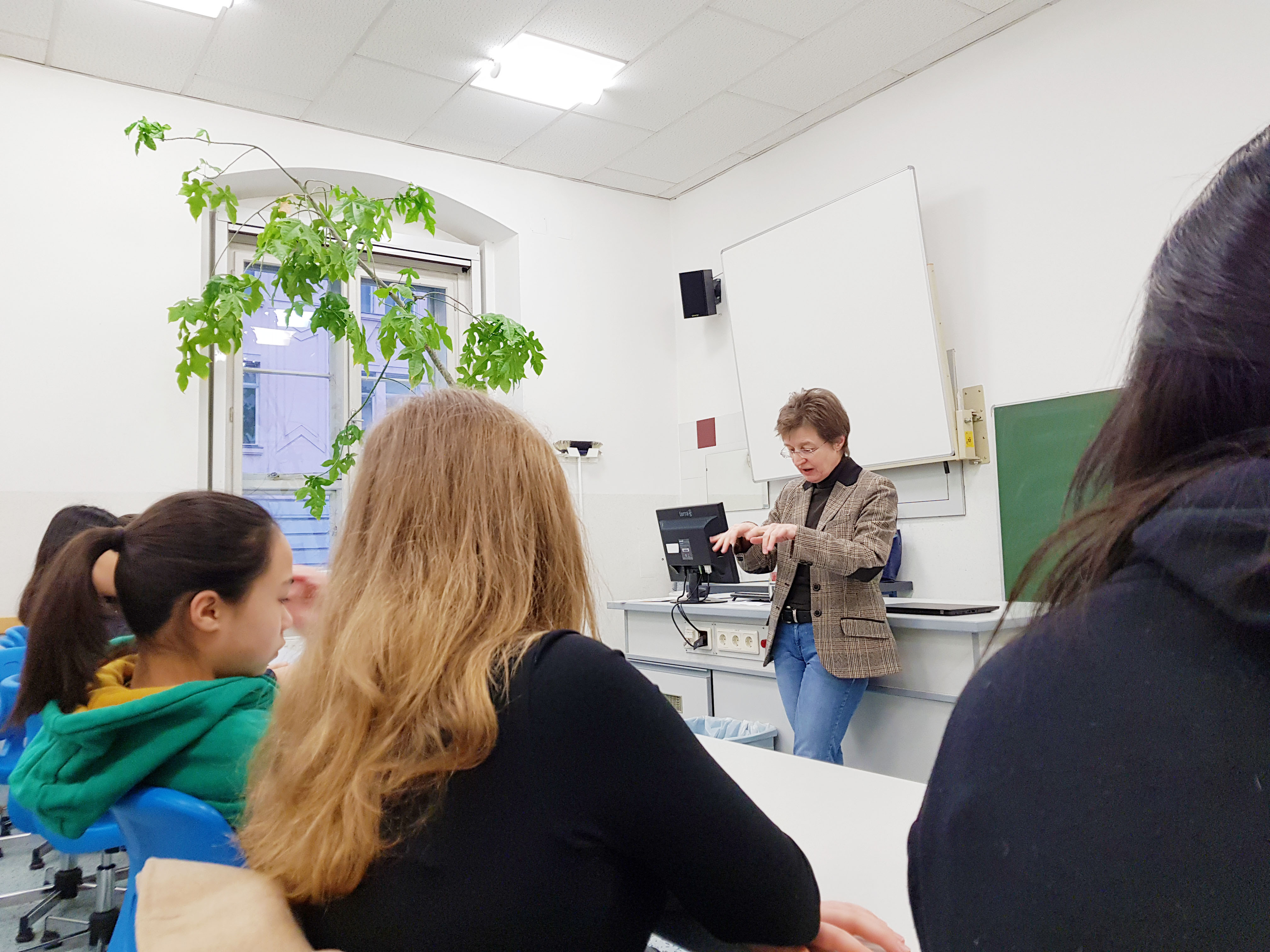Workshop series: Diary of a computer scientist
| DATE: | Monday, January 27, 2020 – Sunday, February 23, 2020 |
Various studies (see UNESCO: Cracking the Code, 2017) show that at the age of 11 or 12, girls are very interested in technical subjects. At the age of 15 or 16, however, this interest has decreased significantly. One reason for this is lack of role models. Even if more and more women are successful as computer scientists, many girls do not know about female computer scientists which could serve as as positive role models in their everyday lives.
This is precisely the gap that is being addressed by the activity “Diary of the Computer Scientist (Tagebuch der Informatikerin)”, part of the ADA project. Diary of the Computer Scientist is a workshop series with an aim is to inspire girls between the ages of 13 and 16 for technology and computer science. The format of the workshop is to give the participating female pupils an opportunity to get in a discussion with a female computer scientist who is during the 45minutes presenting the field of computer science as such, as well as her personal story, and allows the participating girls to share their own worries, or passions. The workshop takes place in the school classes across Austria in order to ease the organizational work of the teachers and making the event accessible.
Power of the Spring 2020
In the first pilot installment of the workshop series, almost 300 female pupils between the ages of 13 and 15 took part in the workshops held in schools in Vienna, Krems, Graz, Salzburg, and Linz. In cooperation with Abenteuer Informatik, the organizers also offered pilot workshops for boys, where they could try out practical activities fostering computational thinking. The workshops took place between mid-January 2020 and mid-February 2020. “The demand from schools was much greater than we had imagined,” says Agata Ciabattoni, Professor of Logic in Computer Science. Due to the huge interest of teachers in the workshops, the organizers of the activity, which is part of the project ADA – Algorithms Thinking Different, are already planning the next round of workshops for winter 2020/2021. See more here
Among the computer scientists and experts who have led workshops at schools in the federal states of Vienna, Lower Austria, Salzburg, Styria and Upper Austria are professors of TU Wien: Dean Prof.in Gerti Kappel, Prof.in Hilda Tellioglu (Visual Computing & Human-Centered Technology), Prof.in Margit Pohl (Human Computer Interaction) and Ass.-Prof.in Martina Lindorfer (Security and Privacy).
The workshops outside Vienna were led by computer scientists such as Marlies Temper (FH St. Pölten), Corinna Kröhn (JKU Linz), Jean Hallewell (FH Upper Austria), Ana Sokolova (University of Salzburg), Johanna Pirker (TU Graz) and Birgit Hofer (TU Graz).
Women in computer science in Austria
Women are not strongly represented in computer science. In Austria, the proportion of female computer science students is around 15%, which is below the European average of 17%. Additionally, girls lose interest in MINT subjects between the ages of 11 and 15 ((UNESCO 2017: Cracking the code: girls’ and women’s education in science, technology, engineering and mathematics (STEM)).
Among the most common obstacles for schoolgirls in Austria that prevent them from entering the field of computer science are:
- the lack of female role models
- little or no practical experience with computer science and
- a negative perception of the daily reality of a woman in science.
Thus, the activity Diary of Computer Scientists is based on the concept of role-models, which is part of a well-rounded strategy for equal opportunities. The presence of female role models in STEM can alleviate negative stereotypes about gender-related skills and provide girls with an authentic understanding of STEM subjects. At its core, good role models are all about trust.
Furthermore, education systems and schools play a central role in determining girls’ interest in STEM subjects and in ensuring equal access to and use of high-quality STEM education. The distortion of self-selection when girls and women choose not to study or pursue a STEM career seems to play a key role, as girls often do not consider STEM professions to be compatible with their gender. Even if girls themselves do not support these stereotypes, knowing that people in their immediate environment have such beliefs can undermine girls’ confidence and thus their performance and intention to pursue STEM careers.
The kick-off of the activity which aim was to map the field of stakeholders and activities working on the topic of girls in STEM in Austria was Hexagonal discussion, which was recorded. More information here.
 |
 |
 |
 |
Project ADA
The activity Diary of Computer Scientists is part of Project ADA, led by VCLA, and funded by the Vienna Business Agency and Austrian Federal Ministry of Climate Action, Environment, Energy, Mobility, Innovation and Technology (BMK). The activity takes place in cooperation with national network Informatik Austria, Austrian Computer Society – OCG, eEducation Austria, and EIS Education Studios of the BMB and Future Learning Lab. The workshops start in 2020 and will take place from January to February until 2022.
In the media
Der Standard
Wie man Zweifeln von Frauen in der IT den Stecker zieht
(How to pull the plug of doubt among women in IT)
Der Standard
Informatik unplugged soll Image wandeln
(Image change by computer science unplugged)
Informatik Austria
„Tagebuch der Informatikerin“ – Mädchen für Informatik begeistern
(Diary of Computer Scientist – Inspire girls for computer science)
TU Wien
Informatikerinnen als Vorbilder
(Computer Scientists as Role Models)
Faculty of Informatics
Role Models for Girls in Informatics
Die Presse
Bewüsst für die Uni entschieden
(With awareness to the university)
School reports
Universitat Salzburg, Salzburg
Sir Karl Popper Schule, Vienna
